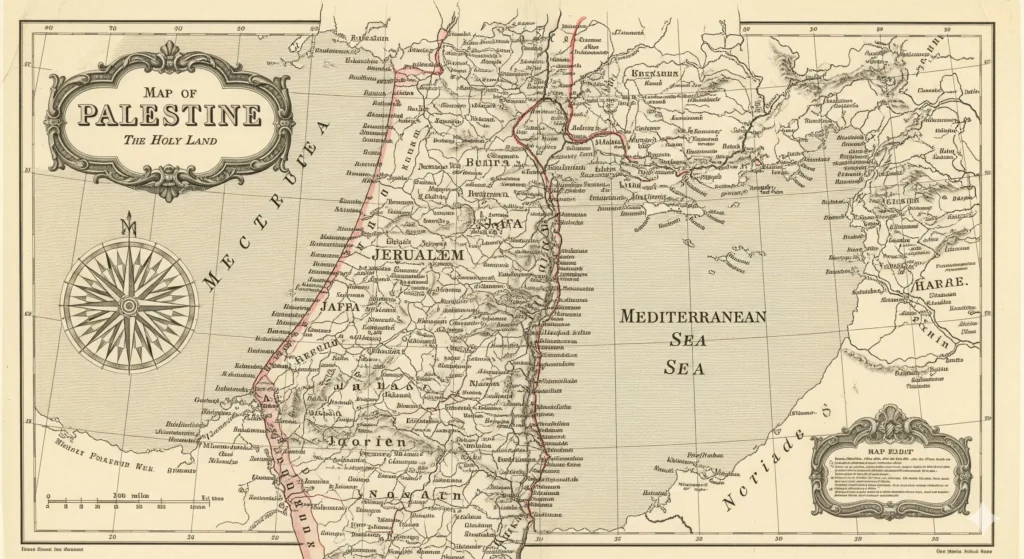
The vast majority of the world, including 147 out of 193 UN members, already recognize Palestine as a state. In 2024, a group of UN experts called on all UN member nations to recognize the State of Palestine in order to bring about an immediate truce in Gaza amid the Israel-Gaza conflict.
France is expected to recognize a Palestinian state during the September UN General Assembly, bringing the total number of countries to 148.
At its core, this involves identity and international diplomacy in addition to boundaries and maps. Let’s break it in a logical manner.
Palestinian recognition’s history
The establishment of the State of Palestine was formally announced in 1988 by the Palestine Liberation Organization (PLO), which is the official representative of the Palestinian people.
In reality, in some areas of the Israeli-occupied West Bank, the Palestinians have some degree of self-government through the Palestinian Authority (PA).
Why It Is Important
According to the current situation, the ongoing war with Hamas, the announcement would signal an essential change in the UK’s foreign policy toward Israel.
During the attack against Israel on October 7, 2023, Hamas unalived 1200 people and kidnapped 251. Then Israel claimed that only 21 of the 58 hostages are thought to be alive and that they are still in Gaza.
Over 60,000 people have been killed in Israel’s offensive in Gaza since it began, according to the Associated Press, which is cited in the Health Ministry of Gaza. Israel’s military operations have raised alarming concerns because of the increasing number of civilians being killed and displaced.
The change coincides with fresh worries that civilians in Gaza may starve, a threat published by Israeli Prime Minister Benjamin Netanyahu.
What To Know about Palestine Recognition
UK Prime Minister Keir Starmer said in July that Britain will recognize Palestine by September, unless Israel makes major changes.
Starmer explained that the UK wants to recognize Palestine as part of a real peace process that supports a two-state solution. He said the UK will do so at the UN General Assembly in September unless Israel agrees to a ceasefire, works to end the crisis in Gaza, and shows commitment to long-term peace.
This comes just days after French President Emmanuel Macron also said France would recognize Palestine in September.
The idea of an independent Palestinian state is still debated worldwide. Some countries have already recognized it for many years, while others continue to refuse.
What It Means When Some Countries Recognize Palestine
Palestine is recognized as a state by many nations worldwide. This does not, however, imply that Palestine is yet free. The West Bank is still governed by Israel, and Gaza is closed.
With recognition, Palestine can speak up in international fora like the International Criminal Court. However, Palestine still retains some degree of sovereignty over its territory, borders, and security. With assistance from strong nations like the United States and the European Union, an agreement with Israel would be required for that.
The conflict becomes about more than just Israel and Palestine when so many nations back Palestine. It turns into a question of justice and international law. Additionally, this backing makes it more difficult for nations that reject Palestine to overlook the issue.
However, there are significant obstacles. It is more difficult to envision a time when Palestine would have its own sovereign nation alongside Israel as Israel continues to construct settlements in the West Bank. Some now question whether the idea of “two states” is dwindling and whether recognition is really a token gesture.
The world is at a turning point: will this acknowledgment encourage actual peace negotiations or will it only serve as a future pledge?
Countries That Recognize the State of Palestine:
Palestine has been acknowledged as a sovereign state by 147 of the 193 members of the UN.
North Africa and the Middle East:
Jordan, Kuwait, Lebanon, Libya, Morocco, Oman, Qatar, Saudi Arabia, Syria, Tunisia, Yemen, Algeria, Bahrain, Egypt, Iraq, and the United Arab Emirates.
Sub-Saharan Africa:
The Democratic Republic of the Congo, Ethiopia, Ghana, Kenya, Nigeria, South Africa, Tanzania, Uganda, Zimbabwe, Botswana, Chad, and Angola are a few of these countries.
Asia-Pacific:
A number of countries, including China, India, Indonesia, Malaysia, Pakistan, the Philippines, Sri Lanka, Thailand, and Vietnam.
Europe:
Bulgaria, Cyprus, Georgia, Iceland, Ireland, Malta, Norway, Poland, Romania, Russia, Serbia, Slovakia, Slovenia, Spain, Sweden, Ukraine, Armenia, Belarus, Bosnia and Herzegovina, and the Czech Republic.
Americas:
Cuba, Ecuador, El Salvador, Guyana, Mexico, Nicaragua, Panama, Paraguay, Peru, Uruguay, Venezuela, Argentina, Bolivia, Brazil, Chile, Colombia, Costa Rica, and Ecuador. Ireland, Norway, Spain, and Slovenia have recently joined this list, having recognized Palestine in May and June of 2024.
Countries That Do Not Recognize the State of Palestine:
A number of nations have not formally recognized Palestine, frequently stating that the Israeli-Palestinian conflict requires a negotiated two-state solution. Notable instances consist of:
North America:
Canada and the US.
Europe:
Portugal, France, Germany, Italy, the Netherlands, and the UK.
Asia-Pacific:
South Korea, Japan, Australia, Myanmar, and New Zealand.
Africa:
Eritrea and Cameroon.
Mexico Acknowledges Palestine
Spain, Norway, and Ireland Will Acknowledge Palestine as a State
Instead of recognizing the creation of a Palestinian state unilaterally, these nations usually encourage direct talks between Israel and the Palestinian government.
Conclusion:
Which nations do not recognize Palestine, then? The United States, the United Kingdom, Canada, Germany, France, Australia, Japan, and the majority of Western Europe are among the most powerful countries in the world.
Palestine is a part of the Organization of Islamic Cooperation and the Arab League, among other international organizations. In international relations, the recognition of Palestine is still a complicated and dynamic topic that reflects varying opinions on how to bring about enduring peace in the Middle East.
Undoubtedly, the discussion is about people, identity, and the future of peace in one of the most disputed areas on Earth; it is not just about a map.

